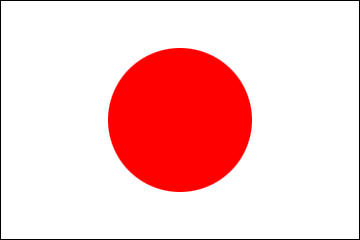Border Enforcement Measures (State of Washington, Montana and Idaho no longer designated as “countries/regions with high concern of coronavirus variant (B.1.617) confirmed for the first time in India”)
2021/9/17
On June 1, 2021 (JST), Japan added Montana and Idaho and on June 11, 2021 (JST), the State of Washington to its list of “countries/regions with high concern of coronavirus variant (B.1.617),” a variant first confirmed in India. Travelers from these states to Japan, regardless of their nationality, were requested to stay for 3 days at specific facilities designated by the chief of the quarantine station where they were required to take a COVID-19 test on the third day. Those who tested negative were then requested to self-quarantine at home for the remaining 11 days of the required 14-day quarantine.
In anticipation of new variants, Japan has categorized the novel coronavirus (COVID-19) into “variants that require strengthened border enforcement measures” and the “other COVID-19 variants,” which includes the conventional COVID-19 variant. After considering factors, such as the increased understanding of variants, the epidemic situation in the countries and regions, risks it may have on the epidemic situation in Japan, and the effectiveness of the vaccine, the 23 U.S. states, including the State of Washington, Montana, and Idaho, that have been designated as “countries/regions with high concern of coronavirus variant (B.1.617),” are no longer subject to the above-mentioned quarantine measures. As of September 20, 2021, at 0:00 am (JST), travelers from the U.S. will no longer be subject to the 3-day quarantine in a specified facility, but are still subject to the 14-day self-quarantine.
In anticipation of new variants, Japan has categorized the novel coronavirus (COVID-19) into “variants that require strengthened border enforcement measures” and the “other COVID-19 variants,” which includes the conventional COVID-19 variant. After considering factors, such as the increased understanding of variants, the epidemic situation in the countries and regions, risks it may have on the epidemic situation in Japan, and the effectiveness of the vaccine, the 23 U.S. states, including the State of Washington, Montana, and Idaho, that have been designated as “countries/regions with high concern of coronavirus variant (B.1.617),” are no longer subject to the above-mentioned quarantine measures. As of September 20, 2021, at 0:00 am (JST), travelers from the U.S. will no longer be subject to the 3-day quarantine in a specified facility, but are still subject to the 14-day self-quarantine.
Recommended Information
- Latest Coronavirus Information
- Ministry of Foreign Affairs of Japan (MOFA)

- Centers for Disease Control and Prevention (CDC)

- US Embassy in Tokyo, Japan

- Montana Department of Public Health and Human Services

- Washington State Department of Health

- Idaho Department of Health and Welfare

- Japan Travel (JNTO)

- Ministry of Health, Labour, and Welfare of Japan (MHLW)

